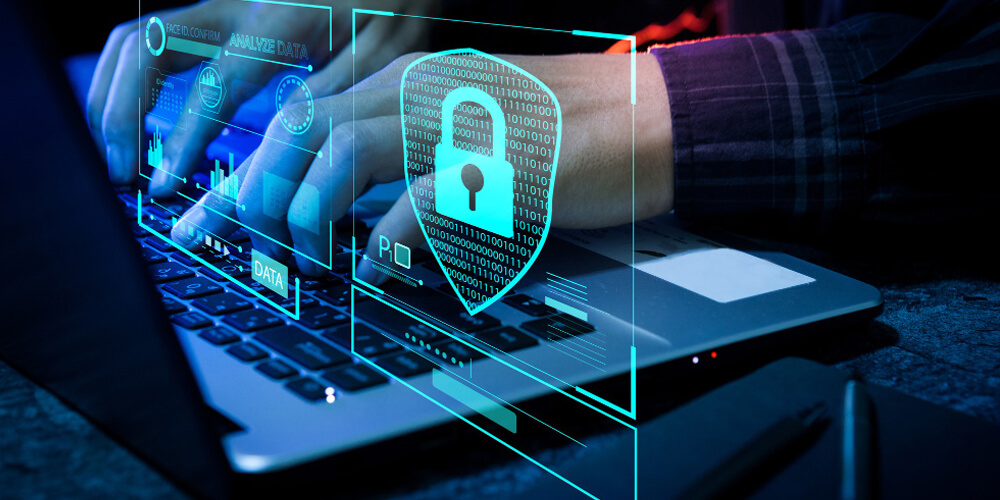How Cybersecurity Analysts Keep Your Business Safe In This Digital World
Every day, people and businesses use the internet to work, shop, learn, and connect. But this also means there are more chances for cybercriminals to steal information, cause problems, or shut down systems. That’s where cybersecurity analysts come in. They work quietly behind the scenes to keep everything running smoothly and safely. These professionals are like digital bodyguards, making sure no one breaks into your online world.
Who Is a Cybersecurity Analyst?
A cybersecurity analyst is someone trained to protect computer systems, networks, and data from hackers. They look for signs that someone is trying to break in and take action before any harm is done. Their job is not just about fixing problems after they happen. it’s also about stopping trouble before it starts.
While some people might look for “cybersecurity experts near me” to solve a one-time problem, a cybersecurity analyst is usually part of a team that works every day to keep systems safe.
Why A Cybersecurity Expert Is More Important Than Ever
In recent years, the number of cyberattacks has grown quickly. In 2023, the Identity Theft Resource Center reported over 3,200 data breaches in the U.S. alone. That was 78% more than the year before! The FBI also said cybercrime complaints reached over 850,000 in 2024, with losses of more than $16 billion.
These numbers show that no one is safe without strong protection. Businesses, schools, hospitals, and even government offices have been targeted. That’s why cybersecurity analysts are needed now more than ever.
What Do They Do Each Day?
Cybersecurity analysts have many jobs. Here are the most important ones:
1. Watching for Threats
They use special software to watch what’s happening in a system. If something looks strange, they take a closer look.
2. Checking for Weak Spots
They test systems to find areas where hackers might try to break in. Once they find these weak spots, they fix them.
3. Installing Safety Tools
They add tools like firewalls and antivirus programs that help block attacks.
4. Teaching Others
Cybersecurity analysts often teach workers how to stay safe online. For example, they might explain how to spot fake emails or use strong passwords.
5. Responding to Attacks
If an attack happens, they move quickly to stop it. Then they figure out how it happened and what to do so it doesn’t happen again.
Tools They Use to Stay Ahead
These Cybersecurity experts use many high-tech tools:
- Firewalls: Stop unwanted traffic from entering a network.
- Encryption: Scrambles data so only the right person can read it.
- SIEM systems: Collect and check data from many places to find threats.
- Antivirus software: Finds and removes harmful programs.
Skills That Make Them Great
To do their job well, cybersecurity analysts need to:
- Solve problems quickly
- Think carefully and logically
- Pay close attention to small details
- Explain tech things in a simple way
These skills help them protect systems and also teach others how to stay safe.
Real-Life Impact: Protecting Businesses and People
The work of a cybersecurity analyst helps businesses keep their doors open. A cyberattack can cost millions, cause customer trust to drop, or even shut down a company. With someone watching over the system, businesses can focus on growing instead of worrying about threats.
These experts also help protect people’s private information, like medical records, bank details, and passwords. When systems are secure, customers feel safe doing business online.
Adapting to Modern Cyber Threats
Cybersecurity analysts have come a long way from just setting up antivirus programs. Today, their work includes watching out for new types of attacks, studying how hackers think, and planning ahead to stop problems before they start.
They also teach teams how to stay safe online. This helps build a company culture where everyone knows the basics like not clicking strange links or using easy passwords.
Because cyber risks keep changing, analysts are always learning. They go to classes, earn new certificates, and keep up with the latest tools. This helps them protect data better and faster than ever before.
Why Businesses Should Have an Expert on Board
Having a cybersecurity expert as part of the team can save a company from big trouble. These professionals bring experience, planning, and fast action when needed. Without one, a business might:
- Lose money
- Damage its reputation
- Face lawsuits or fines
- Lose customers
So instead of asking, “Do I need one?” businesses should be asking, “Can I afford not to have one?”
Trusted Expertise in Cyber Defense
As threats become more complex, having the right people in place matters more than ever. A trusted cybersecurity expert doesn’t just fix problems. They build a shield around your company’s future.
One example is Dr. Ondrej Krehel, a global leader in cybersecurity. He has helped with serious digital crimes, even working in cyber hostage cases. He started LIFARS, a top company that deals with data breaches and digital forensics. Dr. Krehel has also worked with the U.S. government and taught at places like Columbia University and the FBI Training Academy. His work shows the powerful role that skilled professionals play in keeping the digital world safe.
Cybersecurity Experts Building A Safer Digital World
In today’s connected world, we all rely on the internet. But with that comes risk. Cybersecurity analysts stand guard, making sure we can use our devices, share information, and do business safely. Whether it’s a large company or a small startup, having strong cyber protection is no longer optional; it’s a must. These professionals are the silent heroes of the digital age. And as the world keeps changing, their role will only grow more important.

